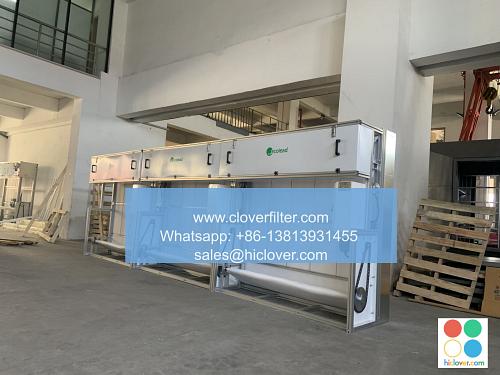Understanding the Impact of Air Filter Type on Energy Efficiency

The type of air filter used in heating, ventilation, and air conditioning (HVAC) systems can have a significant impact on energy efficiency. In fact, high-efficiency air filters can help reduce energy consumption and costs, while also improving indoor air quality (IAQ). In this article, we will explore the different types of air filters available, their energy efficiency benefits, and their various application areas, including commercial HVAC systems, industrial air filtration, and residential air quality control.
Types of Air Filters
There are several types of air filters available, each with its own unique characteristics and air filtration efficiency. Some of the most common types of air filters include:
* MERV-rated filters: These filters are rated on a scale of 1-20, with higher ratings indicating better particulate removal efficiency. MERV-rated filters are commonly used in commercial and residential HVAC systems.
* HEPA filters: These filters are designed to capture 99.97% of particles as small as 0.3 microns, making them ideal for high-sensitivity applications such as hospitals and clean rooms.
* Activated carbon filters: These filters are designed to capture gases and odors, making them ideal for indoor air quality control applications.
* Pleated filters: These filters are designed to increase airflow and reduce pressure drop, making them ideal for high-velocity HVAC systems.
Energy Efficiency Benefits
The type of air filter used can have a significant impact on energy efficiency. High-efficiency air filters can help reduce energy consumption and costs in several ways:
* Reduced fan energy: High-efficiency air filters can help reduce fan energy consumption by minimizing pressure drop and airflow resistance.
* Improved heat transfer: High-efficiency air filters can help improve heat transfer by allowing for more efficient airflow and heat exchange.
* Extended equipment life: High-efficiency air filters can help extend the life of HVAC equipment by reducing wear and tear and corrosion.
Application Areas
Air filters are used in a variety of applications, including:
* Commercial HVAC systems: High-efficiency air filters are commonly used in commercial HVAC systems to improve indoor air quality and reduce energy consumption.
* Industrial air filtration: High-efficiency air filters are used in industrial applications to capture hazardous particles and gases, improving worker safety and product quality.
* Residential air quality control: High-efficiency air filters are used in residential applications to improve indoor air quality and reduce allergy symptoms.
* Healthcare facilities: High-efficiency air filters, such as HEPA filters, are used in healthcare facilities to capture pathogens and infectious particles, reducing the risk of hospital-acquired infections.
Conclusion
In conclusion, the type of air filter used can have a significant impact on energy efficiency. High-efficiency air filters can help reduce energy consumption and costs, while also improving indoor air quality. By understanding the different types of air filters available and their energy efficiency benefits, building owners and operators can make informed decisions about which filters to use in their commercial HVAC systems, industrial air filtration, and residential air quality control applications. By selecting the right air filter for the job, we can improve energy efficiency, indoor air quality, and overall building performance. You didn’t provide a prompt. Please go ahead and provide one, and I’ll do my best to help! What’s on your mind?

